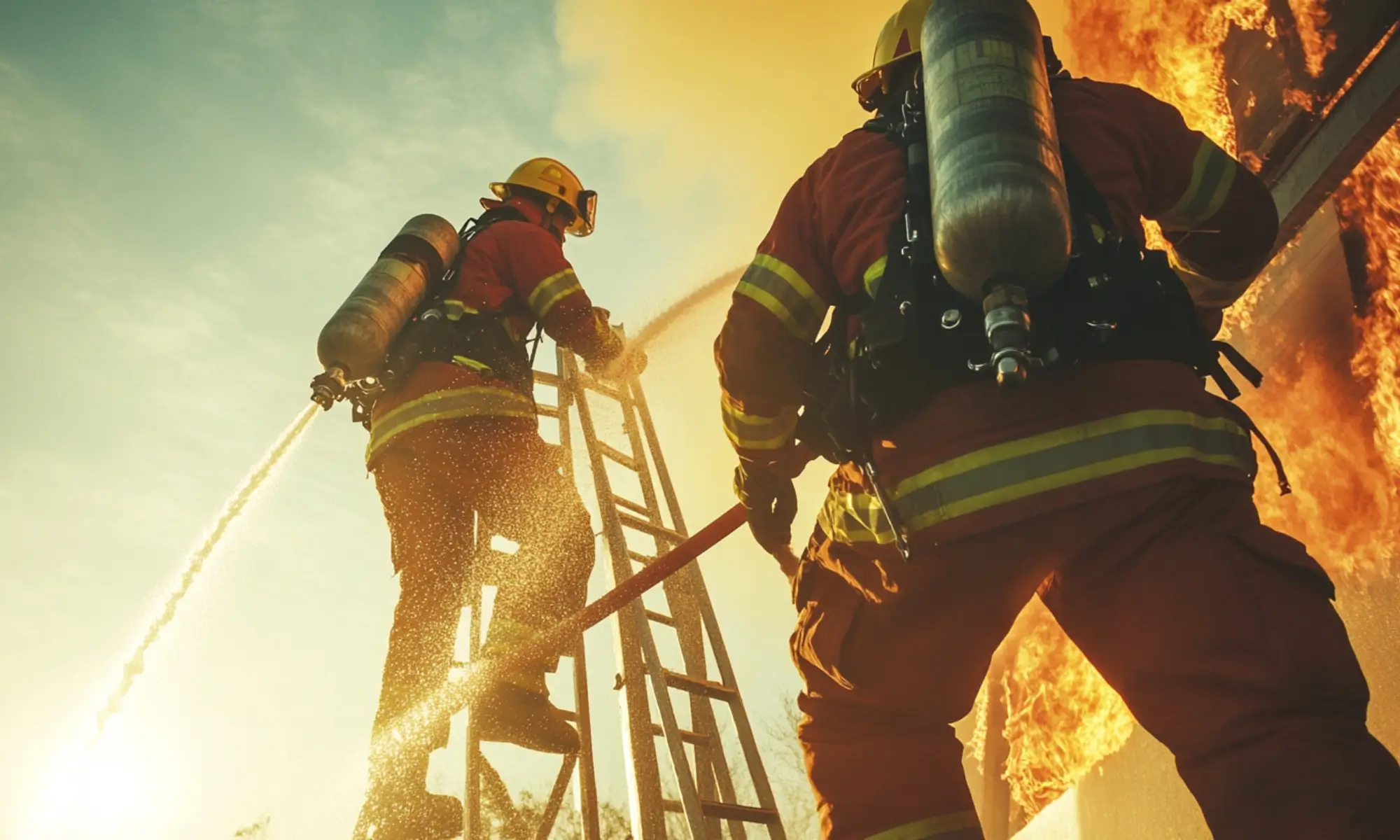Firefighters are essential in protecting lives, property, and the environment. They battle active fires, respond to emergencies, provide medical aid, and educate the public about safety. Becoming a firefighter requires dedication, physical fitness, and a commitment to service.
This guide outlines the steps to becoming a firefighter and provides insights into the qualifications, training, and certifications needed to excel in this rewarding career.

How to Become a Firefighter: A Step-by-Step Guide
A career in firefighting is more than just a job—it’s a calling. Firefighters are community heroes who respond to emergencies, protect citizens, and ensure public safety. If you’re drawn to a role that combines physical challenges, teamwork, and the opportunity to make a difference, firefighting could be the perfect fit for you.
Becoming a firefighter requires dedication, physical fitness, and a passion for serving your community. Below is a step-by-step guide to help you on your path to becoming a firefighter.
Step 1: Meet the Basic Requirements
Before embarking on the journey to become a firefighter, you must ensure you meet the foundational qualifications set by fire departments. These requirements establish a baseline for applicants and demonstrate your ability to handle the job’s responsibilities. Here’s what you need:
Age
- Most fire departments require applicants to be at least 18 years old, though some may set the minimum age at 21. This ensures candidates possess the maturity and decision-making capabilities needed for such a critical role.
- Depending on the department, there may also be maximum age limits, often between 28 and 35.
Education
- The minimum educational requirement is a high school diploma or GED. High school courses like science, math, and physical education can provide a strong foundation.
- While not mandatory, pursuing higher education (e.g., associate or bachelor’s degree in fire science) can give you a competitive edge during the hiring process.
Citizenship
- Applicants must be U.S. citizens or possess legal authorization to work in the United States.
Driver’s License
- A valid driver’s license with a clean driving record is essential. Firefighters often operate large emergency vehicles, and a history of traffic violations could disqualify you.
Criminal Background Check
- A clean criminal record is crucial. Fire departments conduct thorough background checks to ensure candidates have the integrity and trustworthiness required for the job.
- If you have past infractions, be prepared to discuss them honestly and demonstrate how you’ve taken steps to improve.
Step 2: Pursue Relevant Education
While a high school diploma or GED is the minimum requirement, furthering your education can enhance your qualifications and set you apart from other candidates.
Fire Science Degrees
- Fire science programs cover topics like fire behavior, prevention strategies, fire suppression techniques, and emergency management.
- These programs are available at community colleges and universities, typically offering associate or bachelor’s degrees.
- A degree can open doors to specialized roles, such as fire investigator or fire inspector, and provide a deeper understanding of fire service operations.
Emergency Medical Technician (EMT) Certification
- EMT certification is often mandatory for firefighters since many departments require their staff to provide emergency medical care.
- EMT programs teach skills like Performing CPR, managing trauma and medical emergencies, and using life-saving equipment.
Pro Tip: Consider Advanced Certifications
- Some fire departments require or prefer paramedic certification beyond EMT training. Paramedics can administer medications, perform advanced life-saving techniques, and provide higher care in emergencies.
Why Advanced Education Matters: Having advanced certifications or degrees makes you more marketable and equips you with the skills to handle complex situations in the field.
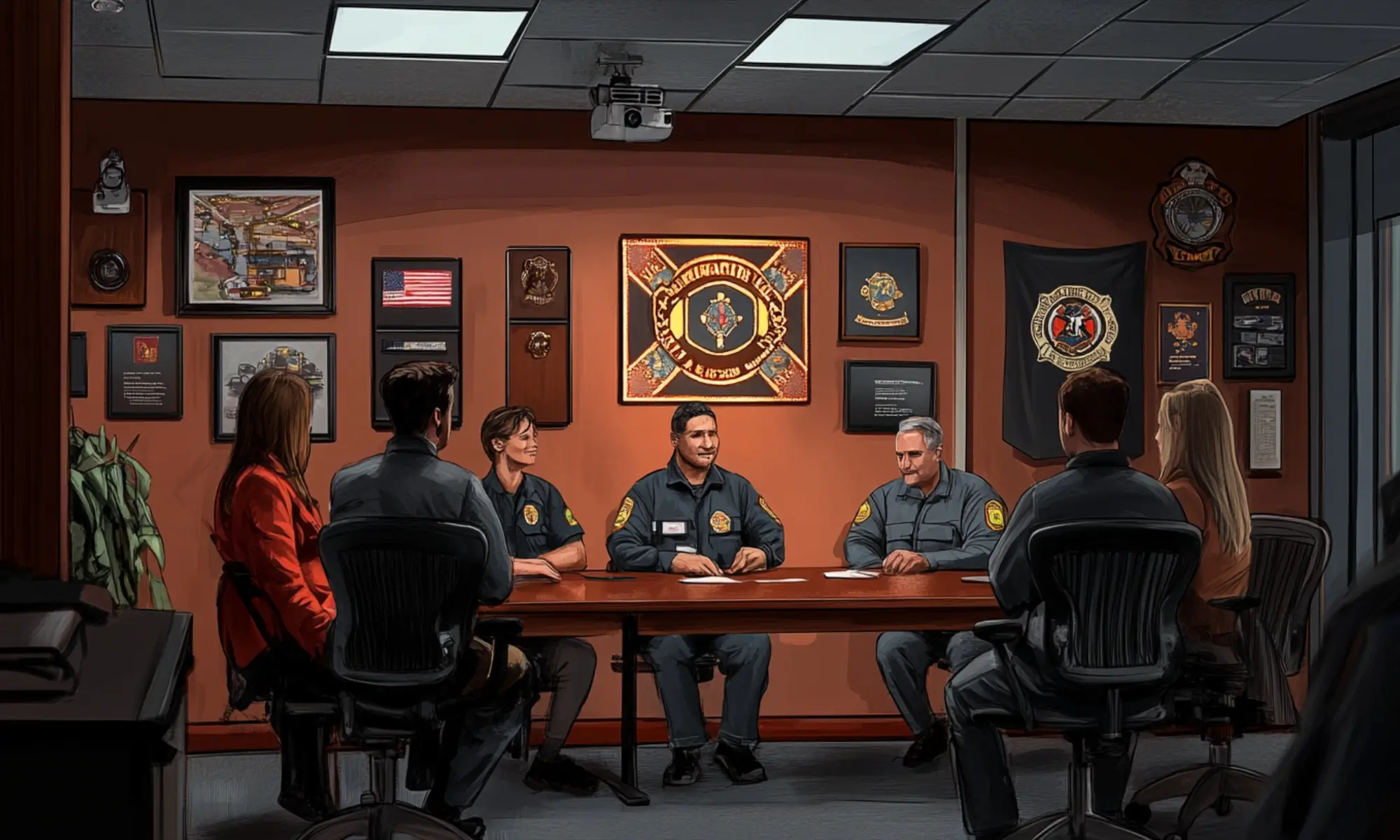
Step 3: Get in Excellent Physical Condition
Firefighting is one of the most physically demanding professions, requiring immense strength, endurance, and agility. Candidates must pass a Physical Ability Test (PAT) to demonstrate they can handle the rigorous demands of the job.
Physical Ability Test Components
- Stair Climbing: Simulating carrying heavy equipment up multiple flights of stairs.
- Hose Drag: Pulling fire hoses, which require significant upper body and core strength.
- Simulated Rescues: Dragging or carrying a weighted mannequin to mimic rescuing a person.
- Barrier Breaching: Using tools like axes or sledgehammers to break through obstacles.
- Equipment Carry: Transporting heavy gear over long distances.
Preparation Tips
- Strength Training: Focus on building core and upper body strength through exercises like deadlifts, squats, and bench presses.
- Cardiovascular Endurance: Incorporate running, cycling, or swimming to improve stamina.
- Functional Fitness: Practice lifting, dragging, and carrying weights to mimic firefighting tasks.
- Consistency: Regular workouts are essential. Aim for 4-5 training sessions per week.
- Nutrition: Maintain a balanced diet to fuel your body for intense physical activity.
Being in peak physical condition isn’t just about passing the PAT; it ensures you’re prepared to handle the physically intense situations firefighters face daily.
Step 4: Gain Practical Experience
Gaining hands-on experience can significantly improve your understanding of firefighting and increase your chances of getting hired. Practical exposure also helps you build connections within the firefighting community.
Volunteer Firefighting
Many fire departments offer volunteer programs where aspiring firefighters can:
- Assist in non-emergency tasks like equipment maintenance.
- Participate in community events to raise fire safety awareness.
- Gain exposure to the daily routines of a fire station.
Volunteering is a valuable way to build relationships with professional firefighters and mentors who can guide your career.
Cadet Programs
Fire cadet or junior firefighter programs are designed for young adults (often 16-21 years old) who want to learn the basics of firefighting.
Cadets can:
- Observe emergency responses.
- Learn about fire suppression and rescue techniques.
- Participate in drills and training sessions.
These programs are ideal for those still in school but eager to start their firefighting journey.
Internships or Ride-Alongs
Many fire departments offer ride-along opportunities, allowing candidates to shadow experienced firefighters during their shifts.
Benefits of ride-along include:
- Observing real-life emergency responses.
- Understanding teamwork dynamics in high-pressure situations.
- Gaining a clearer picture of the physical and mental demands of the job.
Why Practical Experience Matters: Practical experience demonstrates your commitment to the profession and provides insight into the realities of firefighting. It also allows you to build a professional network, which can be invaluable during the hiring process.
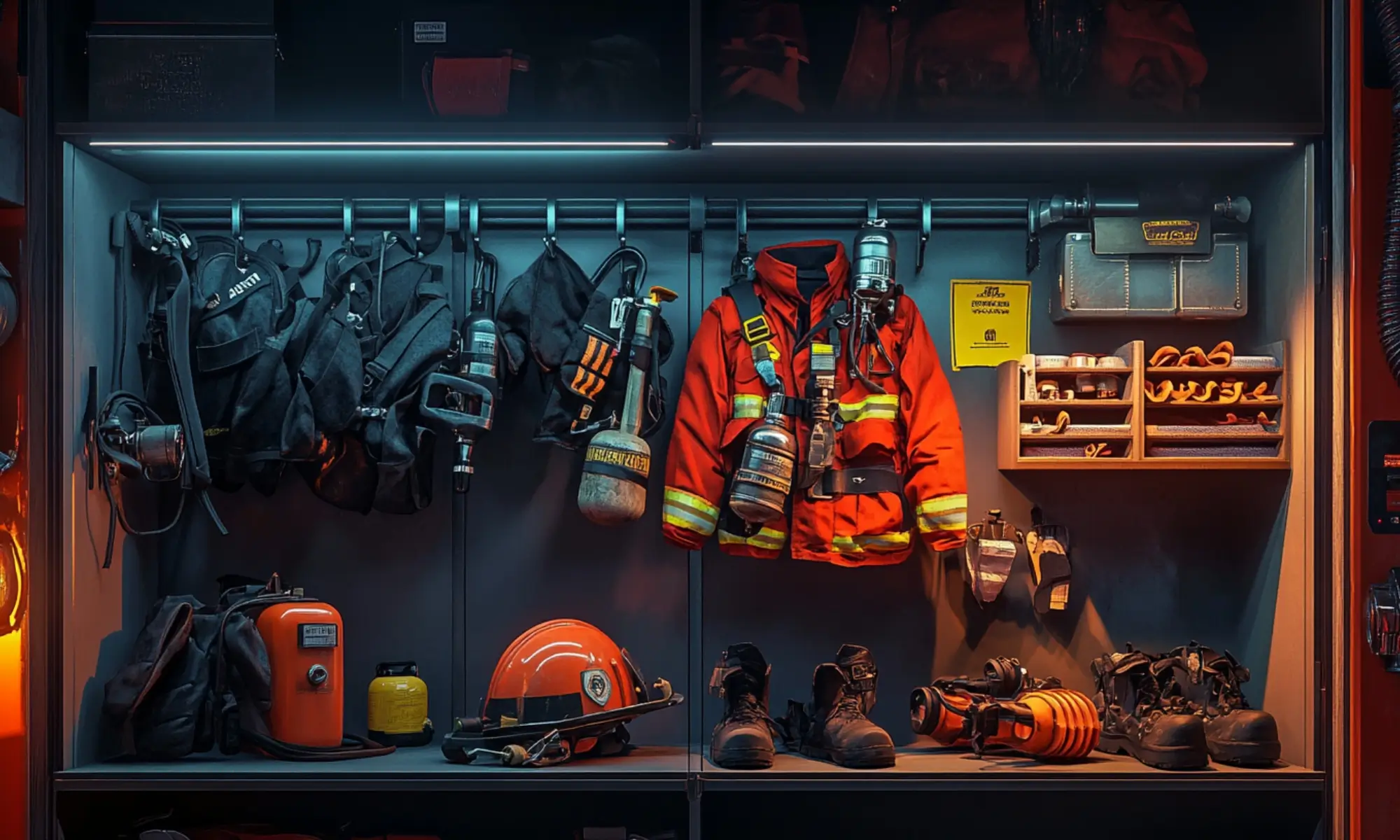
Step 5: Pass Written and Psychological Assessments
Firefighting requires a sharp mind and emotional resilience. During the hiring process, candidates must complete a series of evaluations designed to assess their cognitive and psychological readiness for the job.
Written Exams
The written exam evaluates your ability to think critically and solve problems under pressure. This test typically includes the following sections:
Reading Comprehension:
- Tests your ability to understand and process written information.
- Includes passages related to firefighting scenarios with corresponding questions.
Math and Mechanical Reasoning:
- Measures your problem-solving skills using basic arithmetic, geometry, and mechanical principles.
- May include questions about pulley systems, water pressure, and force.
Situational Judgment:
- Assesses how you would respond to hypothetical situations.
- Includes scenarios testing decision-making, teamwork, and ethical judgment.
Psychological Evaluation
This evaluation ensures that you possess the emotional stability to handle the high-stress nature of firefighting. It often includes:
- Personality Assessments: Measures traits like resilience, empathy, and stress management.
- Behavioral Scenarios: Evaluates how you would react to challenging situations, such as life-threatening emergencies or interpersonal conflicts.
Preparation Tips:
- Practice sample written tests available online for firefighting exams.
- Get adequate sleep and stay calm during the psychological assessment. Be honest and consistent in your answers.
Step 6: Complete Firefighter Training at an Academy
Once hired, you’ll attend a fire academy for formal training. This program equips you with the technical skills and physical abilities necessary for the job.
What You’ll Learn at the Academy
- Fire Suppression Techniques: Learn to control and extinguish different fire types, including training on using hoses, pumps, and extinguishers.
- Hazardous Material Handling: Covers the identification and management of chemical, biological, and radiological hazards.
- Emergency Medical Procedures: Reinforces EMT skills, such as CPR and trauma care and may include advanced first aid and lifesaving techniques.
- Vehicle Operation: Teaches safe operation of fire trucks and emergency vehicles.
Training Duration and Format
- Training typically lasts 10–24 weeks, depending on the department.
- Combines classroom instruction with hands-on drills like live fire exercises and mock rescues.
Pro Tip: Take the academy seriously. Your performance here can influence your career trajectory and reputation in the fire service.
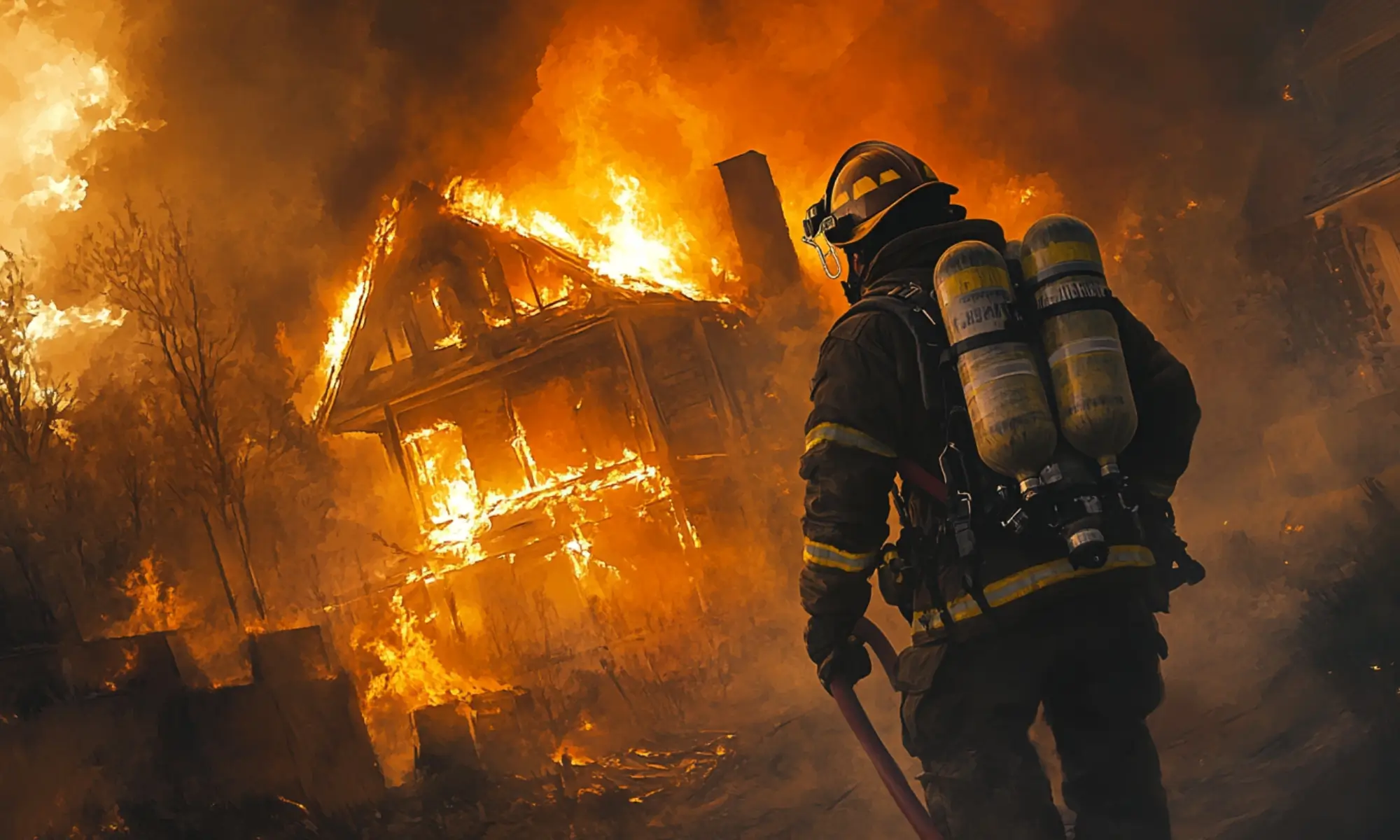
Step 7: Obtain Necessary Certifications
Certifications are critical to validating your firefighting skills and knowledge. While some are required by departments, others can make you a more competitive candidate.
Key Certifications
- Firefighter I and II: State-level certifications covering the basics of fire prevention, suppression, and safety, which are required for most firefighting positions.
- Hazardous Materials Handling: Necessary for managing incidents involving dangerous substances. Includes training on containment, evacuation, and decontamination procedures.
- Wildland Firefighting Certification: This certification is required for those working in areas prone to wildfires and covers techniques for controlling wildfires and protecting wildland-urban interface areas.
Additional Certifications to Consider:
- Advanced EMT or paramedic licenses.
- Driver/Operator certification for operating emergency vehicles.
Step 8: Ace the Job Interview
The firefighter job interview is a crucial step in the hiring process. Fire departments use these interviews to assess your motivation, problem-solving abilities, and fit with the team.
Common Interview Questions
- Why do you want to become a firefighter: Share a personal story or motivation demonstrating your passion for helping others.
- How do you handle high-pressure situations: Provide examples of past experiences where you remained calm and effective under stress.
- Describe a time when you worked as part of a team to achieve a goal: Highlight your collaboration skills and ability to contribute to a team effort.
Tips for Success
- Be Honest: Authenticity goes a long way. Fire departments value candidates who are genuine and trustworthy.
- Do Your Research: Learn about the department’s history, mission, and values.
- Practice: Rehearse common questions with a friend or mentor.
- Show Confidence: Maintain eye contact, speak clearly, and present yourself professionally.
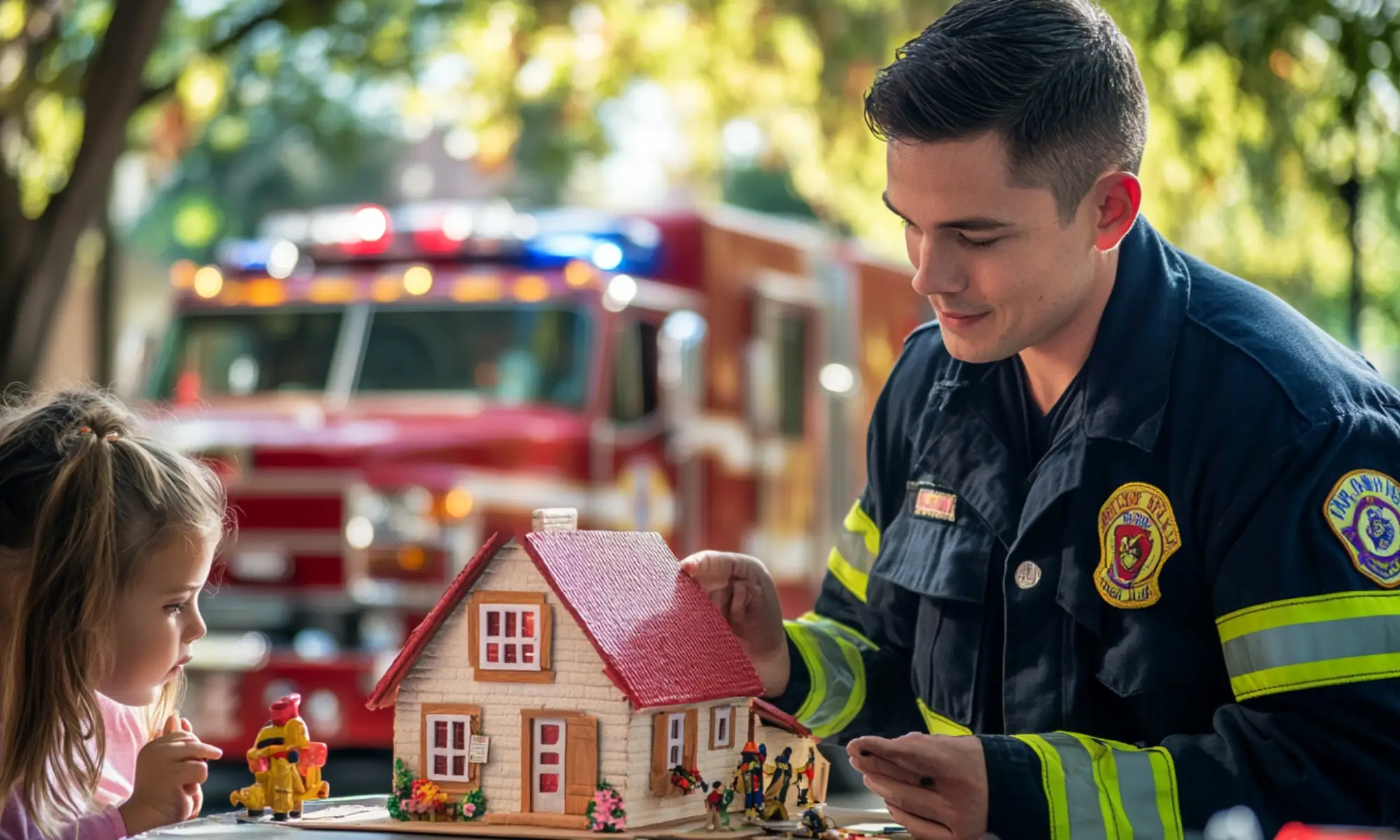
Step 9: Begin Your Career and Continue Learning
After successfully completing all the steps, you’ll begin your career as a firefighter. The first phase typically involves a probationary period, during which your performance will be closely monitored.
Probationary Period
- Lasts between 6 months and 1 year.
- Involves additional training, evaluations, and on-the-job learning.
Career Advancement Opportunities
- Engineer: Operates and maintains firefighting vehicles and equipment.
- Lieutenant or Captain: Oversees teams during operations and ensures proper execution of firefighting strategies.
- Fire Investigator or Inspector: Focuses on determining the cause of fires and ensuring compliance with safety regulations.
- Fire Chief: Leads the entire fire department, managing operations, budgets, and personnel.
Continuing Education
To advance in your career, pursue additional certifications or higher education:
- Bachelor’s degrees in public administration, fire science, or emergency management.
- Specialized training in disaster response, urban search and rescue, or hazardous materials.
Conclusion
Becoming a firefighter is a challenging but immensely rewarding career path. You can position yourself as a strong candidate in this competitive field by meeting the qualifications, pursuing relevant education, and gaining practical experience.
Firefighting is not just a job—it’s a commitment to community service and public safety. Whether you respond to emergencies, educate the public, or collaborate with first responders, your work will make a lasting impact.
Are you ready to take the first step toward becoming a firefighter? Start preparing today to embark on this heroic journey!

